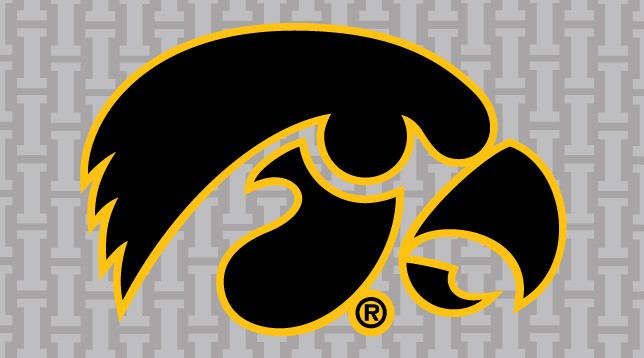The transfer portal has good intentions, but the NCAA is handling it poorly and unfairly
By Pat Harty
IOWA CITY, Iowa – The NCAA has rules that require non-graduate transfer players to sit out a year if they move to another FBS school.
The rules were implemented to keep big-time college sports, namely football and men’s basketball, from becoming like free agency.
But lately, there has been a softening of the rules as exceptions have been made under the new transfer portal setup, although, for reasons that are hard to explain and even harder to justify.
And that’s a concern, not because exceptions are being made, because you could argue that NCAA transfer rules have been far too rigid when it comes to the student-athletes.
The concern is with the choices that are being made for the exceptions.
The NCAA recently denied Brock Hoffman’s waiver request for immediate eligibility at Virginia Tech even though his reason for wanting to transfer from Coastal Carolina was to be closer to his ailing mother, who recently had surgery to remove a brain tumor.
The offensive lineman told Virginia Tech Insider that his mother still has facial paralysis, hearing loss and eye-sight issues.
But according to Hoffman, the NCAA denied his waiver request because Virginia Tech is five miles outside of the 100-mile radius from his home, and that his mother’s condition is improving.
The NCAA added a distance imitation of 100 miles in 2012 for student-athletes applying for a waiver to transfer to a school closer to home due to an illness or injury to an immediate family member.
It also removed the life-threatening standard for the waiver request.
So it appears the only thing keeping Huffman from being immediately eligible at Virginia Tech is five measly miles and a bureaucracy that apparently refuses to budge in his case.
You could argue that rules are certainly rules, and if the NCAA makes an exception with five miles, than what happens when somebody who lives 10 miles outside of the 100-mile radius applies for a transfer waiver?
The problem with that argument is that the NCAA has so little credibility in this case because its choices for granting waivers have made little sense.
Quarterbacks Justin Fields and Tate Martell both were granted waivers, but their reasons for transferring from Georgia to Ohio State and from Ohio State to Miami (Fla.), respectively, was based solely on just playing time it appears.
Fields, a former five-star recruit, apparently grew tired of being Jake Fromm’s backup at Georgia, and wasn’t willing to sit for another season, so he transferred to Ohio State where he will play immediately this fall.
Martell, another five-star recruit, apparently didn’t like the idea of competing with Fields for the starting position at Ohio State, so Martell bolted to Miami (Fla.) and will also play immediately.
The NCAA grants a waiver to two players who appear to simply be avoiding competition, but deny a waiver, apparently because of five miles, to a player who wants to be closer to his ailing mother.
That just sends a horrible message that you can run from competition, but still be rewarded.
It also makes it seem that the NCAA is more concerned about catering to the blue blood programs and to the high-profile recruits for the sake of making money than showing any compassion or sympathy.
Huffman reportedly is seeking an appeal, so maybe the NCAA decision makers will finally come to their senses.
How could the NCAA not grant a waiver under his circumstances after having granted waivers to both Fields and Martell?
The NCAA transfer portal was recently established to give student-athletes more flexibility and options. A while its intentions are good, the process leaves much to be desired because there is no consistency with regard to who is granted waivers.
Other players who are upset about playing time will see that Fields and Martell were granted waivers and will now use their cases to support their cases.
Iowa coach Kirk Ferentz is concerned that the transfer portal will create an environment of free agency, and he might be right, considering what already has happened since it was launched on Oct. 15, 2018.
“If you get the right lawyer, you might have a pretty good chance of becoming immediately eligible,” Ferentz said in February. “And I think we're just kind of, we're getting into some real gray area in terms of what would cause a guy to have to sit or a guy to be eligible.
“I think we're opening up a door to maybe some scary territory. It's concerning.”
Ferentz already is sensitive about waivers and transfer rules because he still hasn’t gotten over that Drew Ott’s waiver for another season was denied by the NCAA in 2016.
Ott, a former all-Big Ten defensive end, was denied a fifth-year of eligibility because he had played in slightly more than 30-perecnt of Iowa’s games in 2015 before suffering a season-ending knee injury in the fourth game.
“I am disappointed with the decision and also disappointed in the process,” Ferentz said at the time.
Fields and Martell shouldn’t be blamed for the NCAA granting them a waiver. They both want to play ASAP and they took advantage of the process.
The NCAA should be blamed for showing what appears to be a bias towards blue blood programs and high-profile recruits.
Because how else can you explain the lack of consistency with its decisions on granting waivers?



